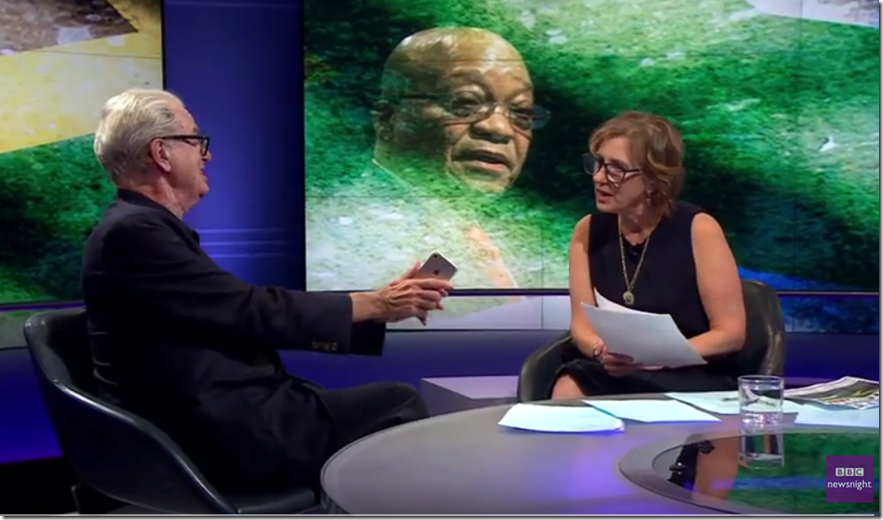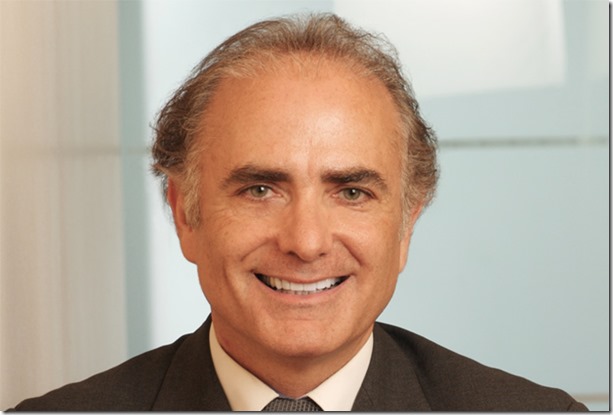July 2012: The Five Worst Video Media Disasters
A politician heckles his disabled opponent.
A killer says his act was “God’s will.”
A journalist implies that Tea Partiers have a connection to mass murder.
Those three things can only mean one thing: It’s time for the five worst video media disasters of July!
5. Congressman Questions Heroism of His Legless Opponent
Republican Illinois Congressman Joe Walsh, who is running for re-election, never served in the U.S. military. His opponent, Democrat Tammy Duckworth, lost both of her legs while co-piloting a Black Hawk helicopter in Iraq.
So what did Walsh do? He criticized her for talking about her military service and questioned whether she was a “real hero.”
4. George Zimmerman Says Trayvon Martin’s Killing Was “God’s Plan”
After seeing Jerry Sandusky’s painful television interview with Bob Costas, you would think that George Zimmerman’s lawyers would have thought twice before putting Trayvon Martin’s killer on television. (If you haven’t been following the case, Trayvon Martin was an unarmed African American teenager; Zimmerman was a local “Neighborhood Watch” captain.)
No such luck. When asked by host Sean Hannity whether he had any regrets about the night of Martin’s killing, Zimmerman said he didn’t, adding, “I feel that it was all God’s plan.”
3. President Obama: “You Didn’t Build That.”
The President’s clumsy phrasing of a key line during a recent speech led to criticism from his opponent and a harmful political ad. Here’s what President Obama said:
“If you were successful, somebody along the line gave you some help. There was a great teacher somewhere in your life. Somebody helped to create this unbelievable American system that we have that allowed you to thrive. Somebody invested in roads and bridges. If you’ve got a business, you didn’t build that. Somebody else made that happen. The Internet didn’t get invented on its own. Government research created the Internet so that all the companies could make money off the Internet.”
Mitt Romney’s campaign quickly reacted with an ad featuring an outraged entrepreneur reacting to this line: “If you’ve got a business, you didn’t build that. Somebody else made that happen.”
It seems clear to me that the President wasn’t saying that. The “that” in the sentence clearly appears to be modifying roads and bridges, and his meaning appears to be that governments have funded important items (e.g. infrastructure and the Internet) that allow business to thrive.
I expect that conservatives will charge me with “bias” for that conclusion, but I felt differently about the President’s “The private sector is doing fine” quip, for which he deserved criticism – and I said so at the time.
So why am I including this on the list? Because in an age when badly phrased ideas become toxic political ads, politicians (unfortunately) have no margin for error. This wouldn’t have been an issue if he had clarified the subject of his sentence more precisely, saying something such as, “If you’ve got a business, you didn’t build the roads and highways that lead your customers there. The government did.”
2. ABC Reporter Brian Ross Equates Tea Party With Mass Murder
Just hours after the shooting that killed 12 people in Aurora, Colorado, ABC Investigative Reporter Brian Ross went on Good Morning America to share something “significant” that he had learned.
Reporter Brian Ross: “There is a Jim Holmes of Aurora, Colorado…on the Colorado Tea Party site as well, talking about him joining the Tea Party last year.”
Two things: First, since when is being in the Tea Party synonymous with mass homicide? Ross seemed to be suggesting that his membership in the Tea Party was somehow revealing. Second, he had the wrong Jim Holmes. Ross later apologized.
1. Mitt Romney’s Rough Start in London
Mitt Romney had hoped to establish his foreign policy bona fides during his first international trip as the presumptive Republican nominee. Instead, he insulted his foreign hosts when asked whether London was ready for their moment in the spotlight.
Instead of offering the diplomatic platitudes one might expect, Governor Romney said, “It’s hard to know just how well it will turn out. There are a few things that were disconcerting.”
In response, British Prime Minister mocked Mr. Romney’s tenure as the head of the Salt Lake City Olympics, saying: “Of course, it’s easier if you hold an Olympic Games in the middle of nowhere.”
If you enjoyed this article, would you please help me reach a larger audience by sharing it with your social networks? Share buttons are below. Thank you!
Bonus Video 1: Chris Christie Takes “Jersey Shore” Too Literally
While strolling on a Jersey Shore boardwalk, New Jersey Governor Chris Christie got criticized by a man who didn’t like his education policy. Mr. Christie followed the man, shouting, “You’re a real big shot. You’re a real big shot. You’re a real big shot, shooting your mouth off.”
In this video, the Governor looks more like The Situation than the state’s chief executive. And you wonder why New Jersey gets a reputation.
Bonus Video 2: San Diego’s 15-Second July 4th Fireworks Show
San Diego’s big fireworks show was supposed to last for 15 minutes. But due to a technical failure, all of the fireworks were launched at the same moment, leading to one of the shortest fireworks displays of all time.
In 30 spectacular seconds, the fireworks show began with the grand finale, ended prematurely, and left thousands of disappointed people wanting more.




Brad:
First, I believe these are all July, not “June” as your introduction states (right below the headline that says, y’know, “July.”) Please add yourself as Bonus #3.
Second, without trying to open the can of worms that could turn this into a political debate, even the most tortured deconstruction of the “you didn’t build that” cannot conclude that “that” (singular) clearly referred to “roads and bridges” (plural). The Romney interview prior to the start of the Olympics will be a footnote to a fortnight of worldwide competition. Obama’s poorly delivered, off-‘prompter riff was rife with sentiments that were alarming to those who celebrate our nation’s proud history of entrepreneurism and innovation. By sheer magnitude of which will have more resonance, I would think those two examples should trade places on your list for July.
James,
Thank you again for your comment.
I knew this push back would inevitably arise, so I appreciate the opportunity to tell you more about my thinking.
The genesis of President Obama’s speech is widely credited to a speech Massachusetts candidate Elizabeth Warren recently made, in which she said:
In reading the entire context of President Obama’s comments, it appears clear to me that he was attempting to deliver a version of that speech, although he obviously did so much less successfully. I consider this gaffe similar to Mitt Romney’s “I like being able to fire people” gaffe. Was Gov. Romney really saying that he got a thrill out of firing people? No. He was saying that he liked to be able to discontinue service with health care providers that provided subpar service. Similarly, I believe that the President wasn’t saying that he doesn’t think entrepreneurs failed to build their own businesses, but that they failed to achieve success in a vacuum of their own making.
As an entrepreneur who started his own business in 2004 by financing it with a home equity loan, I share your sentiments about our nation’s proud history of entrepreneurship and innovation. But I’m not in the least offended by the idea that I didn’t do it on my own. I get to client sites on airplanes that are regulated by the FAA. I drive on roads, paid for by taxpayers, that local, state, and federal governments built. I use the Internet that was developed by government research. I don’t think it’s in any way incongruous to share that sentiment and be a proud entrepreneur.
Thanks for your comment. Go easy on me for the typo, though! I’ve written 570 stories over the past two years. Inevitably, small errors will creep through…
Best wishes,
Brad
James,
Thank you for your thoughtful comment. I suspected a few people would share your view, and will write more about my thinking on this matter later this evening.
Thanks for pointing out the typo, as well. I’ve made the change.
Best wishes,
Brad
I’m glad you took my pointing out the typo in the spirit in which it was intended, Brad. Thanks.
I understand your point about the Obama selection and was very familiar with the Elizabeth Warren remarks he was paraphrasing, which, it turns out, she was liberally (small “L”) borrowing from a Berkeley professor. What still strikes me about the gaffe is not the content of his premise, which you elucidate on in your reply, but the inartful* way in which it was delivered. A politician whose career has been built on his gift for speechmaking and stentorian tones went very much awry when trying to speak on the fly with an inadequate paraphrase of someone else’s concept. This is a very dangerous and fiercely competitive race in which that was allowed to occur. It probably shouldn’t have happened and gave his opponent a large foothold to counter it. On that basis alone, I believe it was the larger of the two gaffes you listed as #3 and #1. (Note that I am still trying to steer clear of debating the sentiment behind the gaffe.)
*”inartful” is a word I first remember hearing come into use in political discourse in the past few years. It sure sounds prettier than to say “clumsy” or “poorly-worded,” doesn’t it?
James,
I agree with almost everything you wrote here, and debated the placement of President Obama’s statement. I made a subjective call based on one factor: whereas there was little doubt regarding the meaning of the comments made by Mitt Romney and Brian Ross (they were self-evident), President Obama’s meaning was less clear. He deserved to be cited for his inartful (or clumsy, or poorly-worded comments), but I also thought that his comments were badly misconstrued for political gain.
Thanks again for your challenging and smart feedback. I never mind a debate with someone presenting an alternative point-of-view.
Best wishes,
Brad